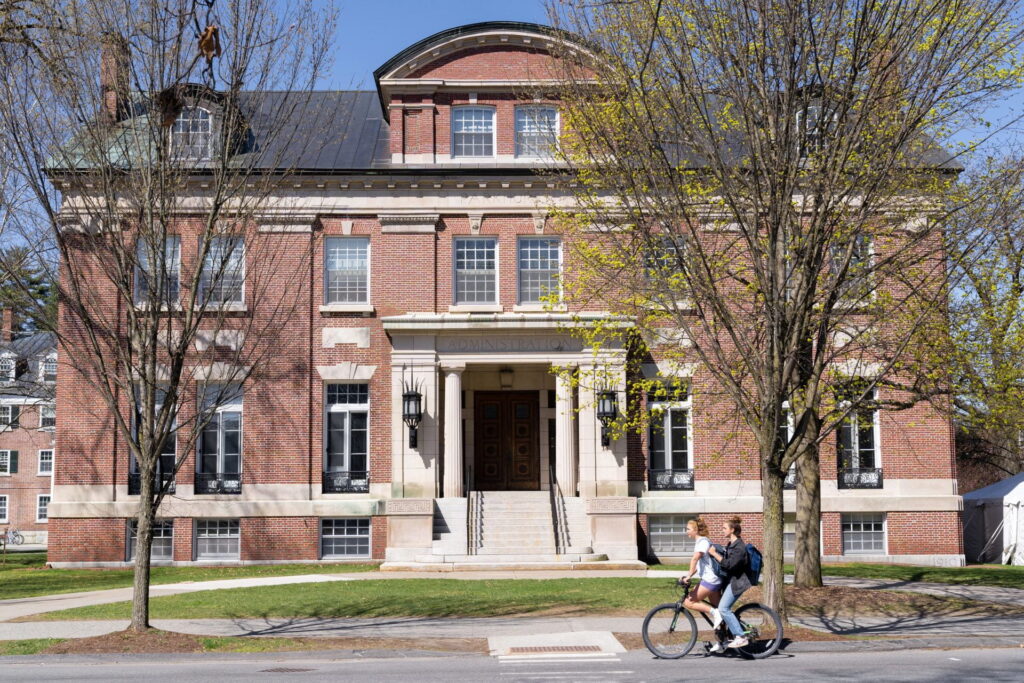
Reversing the COVID-induced trend for institutions of higher education to phase out the requirement of standardized testing, Dartmouth announced on February 5 that, starting with the Class of 2029, the standardized testing requirement for applicants will be reinstated. Dartmouth appears to be charting the course for other universities to follow suit: On February 22, Yale University reimplemented its own standardized testing requirement.
Dartmouth’s actions do not come entirely unexpected—the College had indicated for months that various faculty members were conducting research to evaluate the efficacy of testing requirements; moreover, the College equivocated on its “test-optional” policy for the Class of 2028—instead opting for the more leading indicator “test-recommended.”
By re-implementing standardized testing, Dartmouth has taken a vital step in restoring objectivity to the college admissions process. Empirically, the SAT or ACT are the best predictor of college success and likewise are the best opportunity for disadvantaged students to demonstrate their academic finesse.
Phasing out standardized testing—by virtue of having one less metric by which to judge students—necessarily requires colleges to place more emphasis on other measures, including extracurricular involvement and GPA. The advantages that wealthy students enjoy in both of these realms are stark, far more so than any which might exist with regard to standardized testing.
In a 2017 study by Michael Hurwitz (the head of the College Board), researchers found that grade inflation in secondary schools has been increasing at an exponential rate in the United States over the past several decades. However, this grade inflation has not been occurring at the same rate across all types of schools: the report found that private schools—at which wealthier students are the usual students—have been far more prone to inflate the grades of students than public schools have been.
This trend necessarily shows that an increase in emphasis on GPA as opposed to standardized will, in actuality, do more harm than good to disadvantaged students. For all their flaws, the SAT and ACT have objective scoring, free of inflation. The greatest opportunity for disadvantaged students to demonstrate their ability lies in these tests.
The obvious advantage that more affluent students enjoy in realms other than standardized testing is similarly outlined in a report, prepared for President Beilock and Dean Coffin, that details the efficacy of standardized testing in the undergraduate admissions process. There is a plethora of data to support the reinstatement of these tests.
One of the most common arguments levied against the implementation of standardized tests is the idea that wealthy students are more able to afford beneficial test-preparation courses than are disadvantaged students, which gives those with wealth a leg up. However, a study conducted by Prof. Derek Briggs of the University of Colorado, Boulder, found that test-preparation courses result in very little substantive difference for students on subsequent SAT examinations. When there was a difference, it was, on average, between 10 and 35 points. On a test measured out of 1600 points, such a difference is miniscule; moreover, this minute difference would likely be eliminated altogether when considering the extra weight that Dartmouth gives to scores coming from students hailing from unprivileged backgrounds. Much of the data claiming that standardized test-preparation courses will boost standardized test scores by hundreds of points are funded by—surprise, surprise—the very companies that sell the test preparation courses. Such companies are highly incentivized to skew and exaggerate the effectiveness of their courses to appeal to customers.
In the report, researchers make clear that Dartmouth is well aware of the difference in circumstances that might prepare students for standardized testing, and that it considers the score relative to the average score of other students at whichever secondary school they attend.
Researchers likewise express concern for the fact that disadvantaged students are not always aware of the extra consideration that Dartmouth gives to students’ circumstances in relation to their test scores. The researchers contend that this has led students whose scores would have actually supplemented their applications in a positive way to refrain from submitting their scores. With a reimposed test-required policy, these students will not lose that extra consideration.
Perhaps the most important part of the research report is the undeniable correlation between a student’s standardized test score and his or her performance as an undergraduate student. As are all metrics by which colleges judge applicants, standardized tests are not perfect. However, when weighed against the other factors, none comes close to the level of empirical objectivity that standardized testing provides.
At the end of the day, the chief goal of admissions officers is to select applicants with the highest likelihood of success in college. In tools which are helpful to achieve that goal, standardized tests have no rival.
By making the decision to reimpuse this requirement, President Beilock and Dartmouth’s Board of Trustees have paved the way for institutions of higher education to return to what is one of the most vital elements of the college admissions process.

Be the first to comment on "Dartmouth Reinstates Standardized Testing, First in Ivy League"